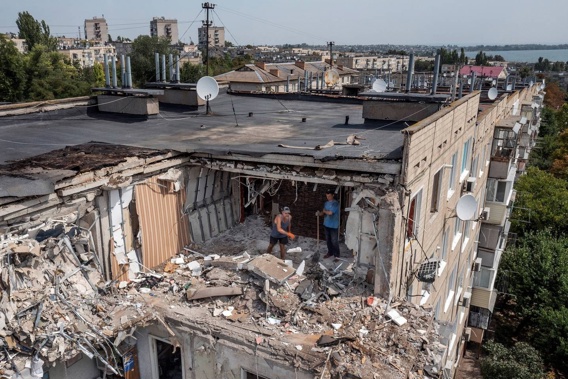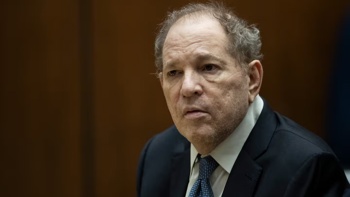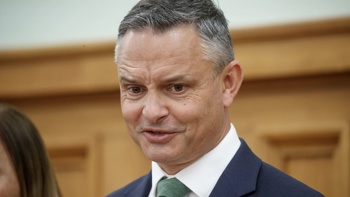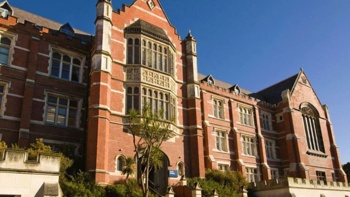
A young girl is caught in a bitter international custody dispute that has reached the top political levels of New Zealand and Ukraine.
An international court decision last year ruled the girl be returned to Aotearoa, but the mother has refused to abide by it. The order said she chose to stay in Ukraine due to New Zealand’s Covid restrictions and her vaccine reluctance.
It also said she did not participate in that court process.
The mother has meanwhile alleged to the Herald her former partner was abusive to their child and believed the girl would be at risk of harm if returned to Aotearoa.
The father vehemently denies there was any abuse.
He said the pair met on a dating website when living internationally in 2013, and moved to Aotearoa in 2016.
The father claimed although they had their disagreements, things were going well until a few years into their time in New Zealand when his former partner allegedly began believing conspiracy theories.
He also said she had threatened to take their daughter away if he chose to get vaccinated.
She alleged their marriage had suffered for a long time and said her personal opinion about Covid had nothing to do with their relationship.
Soon after the father received his Covid-19 vaccine, he said the mother returned to her home country, Ukraine, with their daughter to visit her sick father.
Around this time, tensions between Ukraine and Russia were also reaching a boiling point, and in February 2022, Russian President Vladimir Putin launched a full-scale invasion.
After his partner did not return with their daughter, the father engaged a lawyer and filed a case with the Hague Convention in March 2022.
In early 2023, his Hague Convention case was successful and the court ordered their child to be returned to New Zealand.
The mother did not accept Herald requests to be interviewed, but provided some responses via email.
The Hague Convention is an international agreement that assumes the courts in the country where a child usually lives are best placed to make decisions about that child’s welfare.
A copy of the ruling provided to the Herald said the mother blamed her decision to stay in Ukraine due to restrictions introduced by the New Zealand Government in connection with the pandemic, and her reluctance to be vaccinated.
“Ukraine continues to be a dangerous place to stay and live. The defendant continues to keep the child in a country where active hostilities are still going on,” the order says.
Although the mother was notified of the time, date and location of the hearing, the ruling said she did not attend court and did not have a valid reason for not doing so.
The mother disagreed and told the Herald she didn’t know when the court hearing was and they didn’t return to New Zealand because her daughter likes Ukraine and has friends and family there. If her daughter asked to come back, the woman said she would respect her will.
The father told the Herald he flew to Ukraine to take his daughter home late last year, but Ukrainian police refused to uphold the court order when his daughter and former partner resisted it.
The mother alleged the man had “tried to steal” their daughter and believed the system was corrupt.
“My straight duty is to protect my daughter, who got abused by her father in New Zealand and Ukraine.”
He strongly denied any abuse and said a second attempt to retrieve his daughter was similarly unsuccessful.
The man also reached out to Foreign Affairs Minister Winston Peters, who later confirmed the New Zealand Embassy had raised a concern with Ukraine’s government over the mother’s refusal to return her child to Aotearoa despite the order to do so.
A letter from Peters addressed to the father said New Zealand officials are aware of the difficulties he’s faced trying to bring his daughter home.
“The New Zealand Embassy in Warsaw has sent a formal letter to the Ministry of Foreign Affairs in Ukraine expressing concern about the process, and they have acknowledged that letter.
“We are unable to intervene in the judicial processes of any other country,” the letter said.
A Ministry of Foreign Affairs and Trade spokesperson told the Herald they were unable to provide an update on the situation due to privacy reasons.
University of Auckland law professor Mark Henaghan said a child objecting to being taken to a country is one of the grounds the Hague Convention courts can consider, but little weight is placed on it.
“It’s very hard, this international stuff, you’re depending on a lot of variables to all work together and when they do it works fine, but every now and again they don’t, like in this case.
“We’ve had children who’ve been taken away and hidden for years and by the time it gets to court four years later, they win because even though they’ve breached every law and every court order in a foreign country, they win because the courts think the child has been here for a long period.”
/cloudfront-ap-southeast-2.images.arcpublishing.com/nzme/SCC4KNFM2NI6RWJOTKK4UOXA3M.jpg) University of Auckland law professor Mark Henaghan says a child objecting to being taken to a country is one of the grounds the Hague Convention courts can consider, but little weight is placed on it.
University of Auckland law professor Mark Henaghan says a child objecting to being taken to a country is one of the grounds the Hague Convention courts can consider, but little weight is placed on it.
He said the most common defence invoked in Hague Convention cases was claiming there was an “intolerable situation” or a “serious risk to the child”.
“They used to put return no matter what, but now they’ve softened because they do realise that escaping from a violent relationship and sending people back does put them at risk.”
Henaghan said while children were usually returned, keeping consistency across countries was hard because every country had its own biases and values when it came to who it protects.
“They are messy, some people do a runner and can’t be found and they normally fight quite hard if they do have to be returned.
“Given what’s happening in Ukraine, in the sense of the losses that they’re having, I think that understandably in the middle of war and losing people all over the place, taking a child away probably seems much more of a threat to them and their society.”
Katie Harris is an Auckland-based journalist who covers social issues including sexual assault, workplace misconduct, crime and justice. She joined the Herald in 2020.
Take your Radio, Podcasts and Music with you









